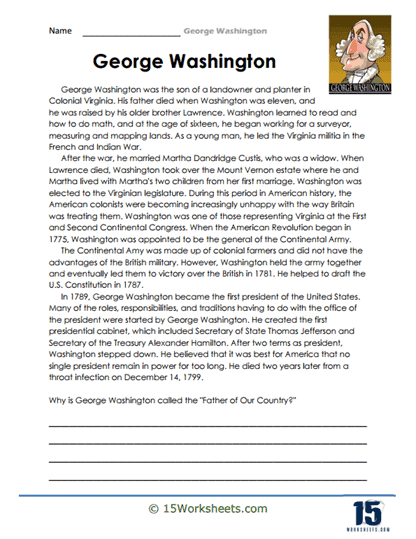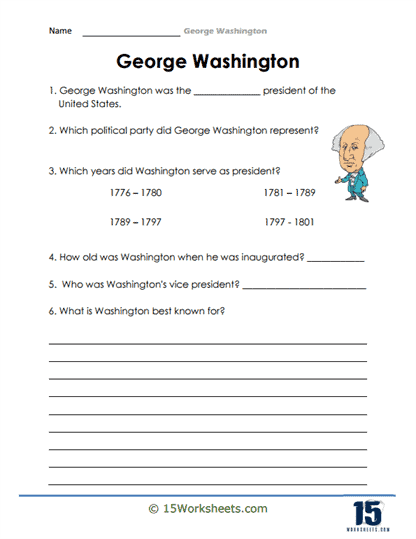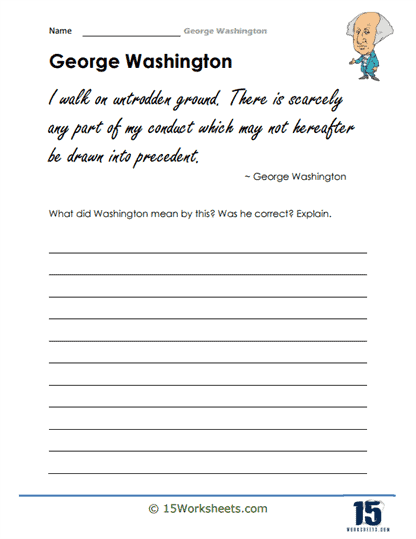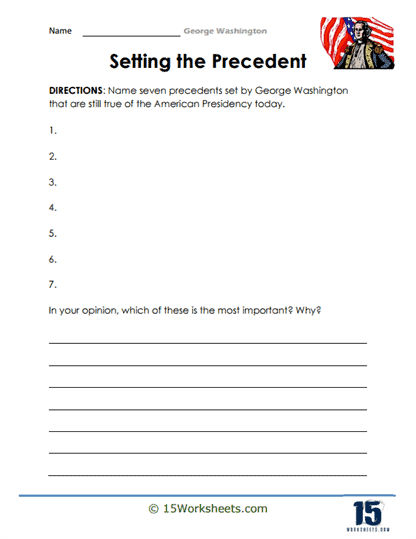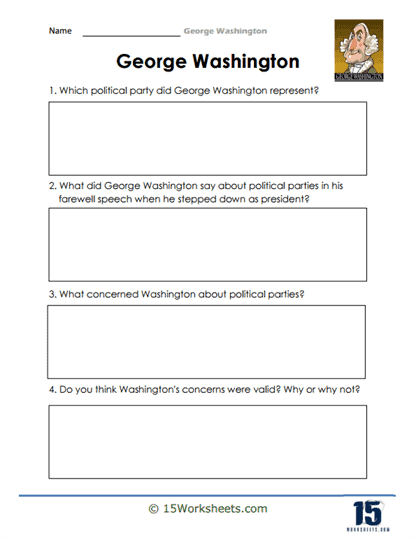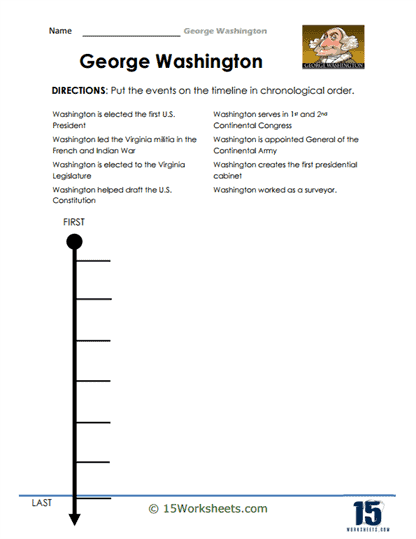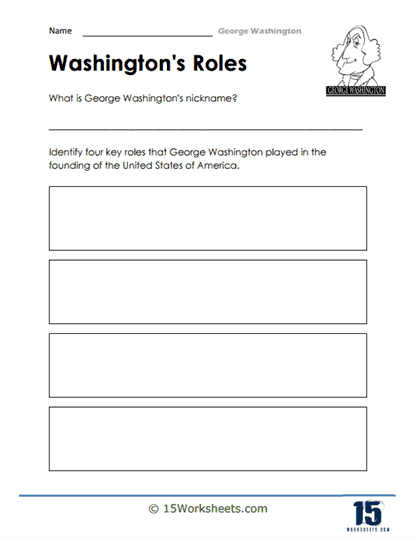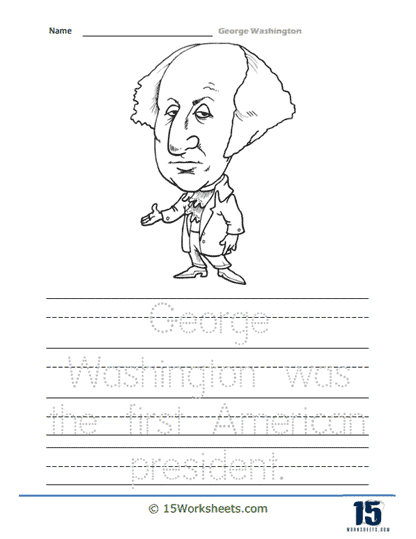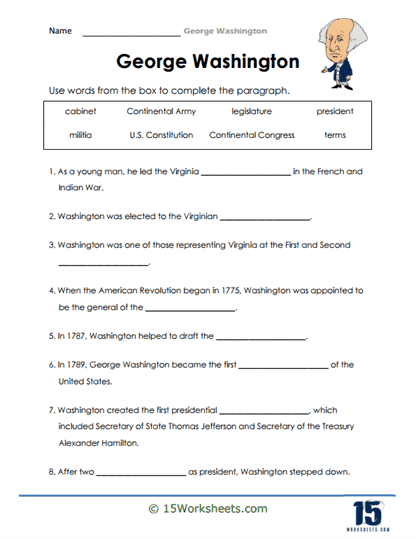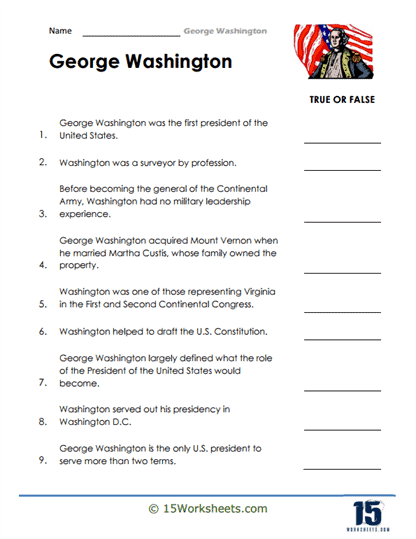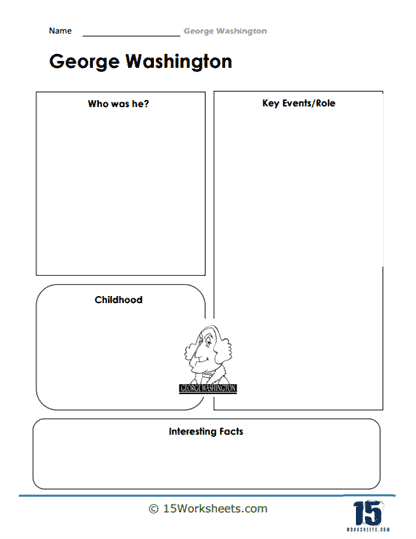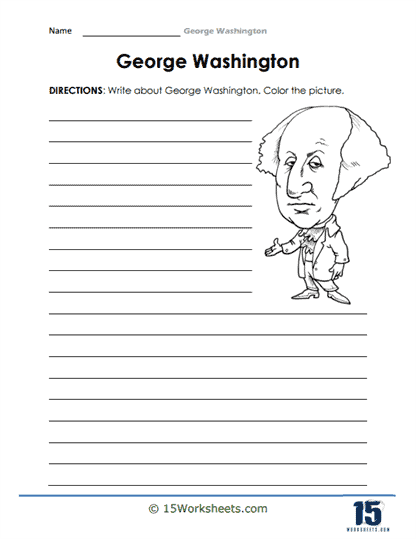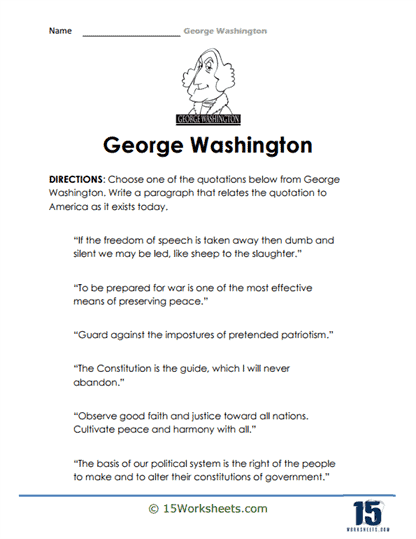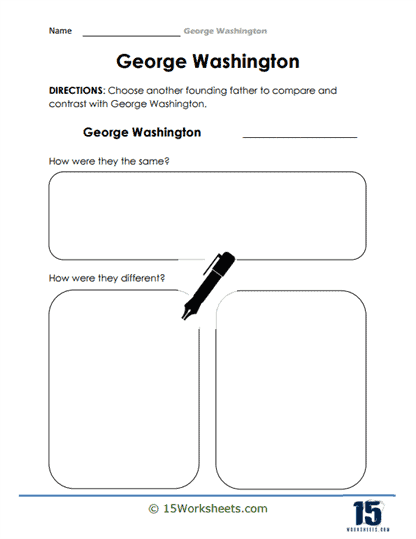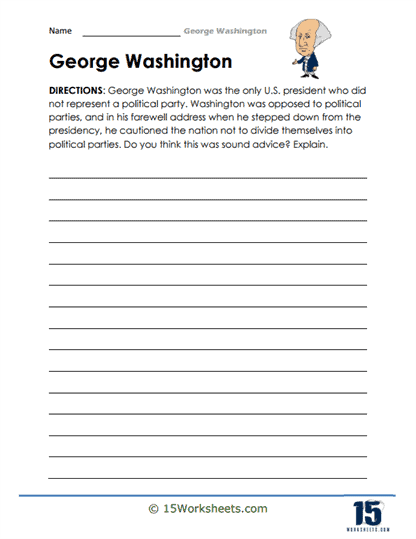George Washington Worksheets
All About These 15 Worksheets
This series of 15 worksheets gets students inspired by the life and legacy of George Washington, the first President of the United States. This collection is designed to introduce them to the remarkable achievements of George Washington, his leadership during the Revolutionary War, and his influential role in shaping the young nation. Through engaging activities and thought-provoking exercises, students will gain a deeper understanding of Washington’s contributions, his character, and his enduring legacy as a founding father. Through these worksheets, students will:
- Thoroughly read a passage to analyze why George Washington is called the “Father of Our Country”;
- Examine Washington’s efforts to establish a strong central government, his foreign policy decisions, and his approach to the office that set precedents for future presidents;
- Reflect on the lasting legacy of George Washington and his impact on American history;
- Investigate George Washington’s concerns about political parties which he addressed in his farewell speech;
- Put key events in the correct order across a timeline;
- Identify the roles that George Washington played in the founding of the United States of America;
- Compare George Washington with another founding father and showcase their similarities and differences;
- Demonstrate everything they’ve learned through fill in the blanks exercises, writing prompts, and true or false questions;
- And synthesize what they’ve learned by effectively showing it through a visual infographic.
In summary, this series of worksheets helps students foster a broader understanding of George Washington’s contributions, character, and his enduring legacy. Through a wide range of exercises, students will develop critical thinking skills, historical empathy, and a greater appreciation for the values and ideals that guided the founding of the United States. This series aims to inspire students to learn from Washington’s leadership, to strive for integrity and civic responsibility, and to honor his memory as a symbol of American democracy.
Who Was George Washington?
George Washington (1732-1799) was a pivotal figure in American history, serving as the commander-in-chief of the Continental Army during the American Revolutionary War and later becoming the first President of the United States (1789-1797). Widely regarded as the “Father of His Country,” Washington’s leadership and vision were instrumental in the founding of the United States and the establishment of its democratic principles.
Born on February 22, 1732, in Westmoreland County, Virginia, Washington grew up in a moderately prosperous family. He became a skilled surveyor and acquired land in the western territories of Virginia. In 1752, Washington began his military career when he joined the Virginia militia and fought in the French and Indian War. His military experience during the war prepared him for his later role as the commander-in-chief of the Continental Army.
In 1775, as tensions between the American colonies and Great Britain escalated, the Continental Congress appointed Washington as the commander-in-chief of the newly-formed Continental Army. Washington successfully led the American forces throughout the Revolutionary War (1775-1783), employing innovative military strategies and persevering through numerous challenges, including scarce resources and difficult weather conditions. His leadership during the war earned him widespread respect and admiration.
Following the American victory in the Revolutionary War, Washington presided over the Constitutional Convention in 1787, which resulted in the drafting of the United States Constitution. In 1789, he was unanimously elected as the first President of the United States, a testament to his popularity and the trust placed in him by the American people. As president, Washington focused on establishing a strong central government, organizing the nation’s finances, and maintaining neutrality in foreign affairs. He set numerous precedents for future presidents, including the two-term limit, which was later enshrined in the 22nd Amendment to the Constitution.
After serving two terms as president, Washington retired to his plantation at Mount Vernon in 1797. He passed away on December 14, 1799. George Washington’s legacy as a military leader, statesman, and founding father of the United States continues to shape the nation’s identity and serves as an enduring symbol of American values and ideals.

